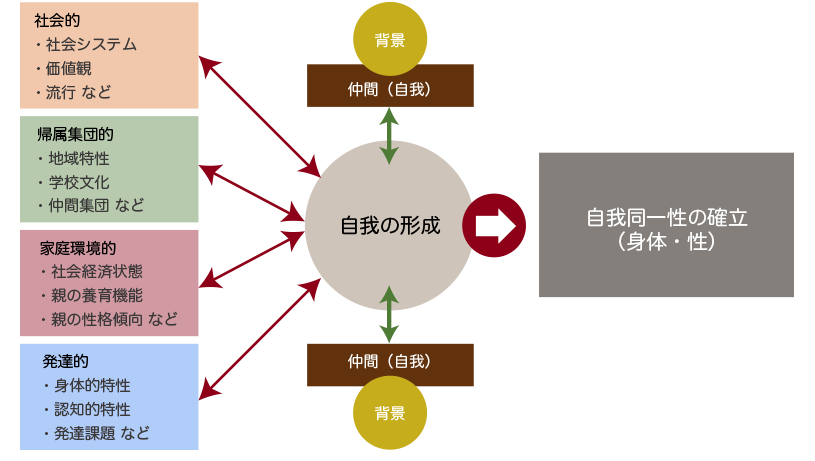ライフハックとしてではなく、英語学習にも極めて有用なのが、著名人が10分程度のプレゼンを行うTEDです。
TED Talksとは、あらゆる分野のエキスパートたちによるプレゼンテーションを無料で視聴できる動画配信サービスのことです。10年ほど前にサービスが開始されてから、政治、心理学、経済、日常生活などの幅広いコンテンツが視聴できることから人気を集めています。
RareJob English Lab
TEDは4000を超える膨大な数の動画があります。しかし慣れないうちは、動画の探し方や視聴のコツが分かりませんよね。この記事では、数多くのTEDを見てきた管理人(塩@saltandshio)が、心を揺さぶられたトークをあらすじと一緒にご紹介します。
ビジネス英会話を効率よく身につけたい方におすすめスクール
シェーン英会話
シェーンは1977年の創業以来、ネイティブ講師が英語を英語で教える「直接教授法」を採用しています。首都圏におけるスクール拠点数は、ネイティブ講師の英会話スクールでNo.1。駅から近いスクールが多いので通いやすく時間を有効に使えます。
スピークバディ パーソナルコーチング
1日1時間の短期集中トレーニングで、あなたの英語力向上をコーチが全力でサポートします。あなたの英語の世界が、劇的に変わります。
シャノン・オデル:友情が脳に与える影響
思春期に築いた友情関係が特別なものだと思うのなら、それは本当に特別だからです。幼少期、思春期、成人期それぞれの友情関係がどれも少し違って見える一因は人生のそれぞれのステージで脳の働きが異なることです。思春期になると価値観、理解の仕方や友達との関わり方が変わってきます。シャノン・オデルが友情についての神経科学を教えてくれます(約4分)。Shannon Odell / How friendship affects your brain.
[PR]無料体験レッスン実施中!全国208校、創業40年の老舗英会話スクール【シェーン英会話】思春期の友情は本当に特別だった
親友と呼べる人と出会ったことはあるでしょうか。それは何歳の頃でしたか?その人との関係はいまも続いていますか?残念ながら現在は交流がないという人でも、思春期に出会った人たちは、その後の人生に大きく影響を与えているというのはわかっていただけると思います。では、思春期の友情は他の時期と比べてなにが違うのでしょうか。
幼少期、思春期、成人期、それぞれの友情関係がどれも少し違って見える一因は、人生のそれぞれのステージで脳の働きが異なることです。
Early childhood, adolescent, and adult friendships all manifest a little differently in part because the brain works in different ways at those stages of life.
思春期は 仲間との関係に重点が置かれる特別な時期で、脳の発達に伴い友達に対する価値観や理解、つながりが変化する時期であることは、科学的にも証明されています。
[PR]まずは無料カウンセリング”続けるため”の オンライン英語コーチ「スピークバディ パーソナルコーチング」10代の友達はまるで一心同体
思春期にたいがいの人は恋に落ちます。マンガやドラマでも青春という名のもとに、恋やケンカ、そして友情が取り扱われることが多いのはご存知の通りです。ドラマだけでなく現実の世界でも、失恋した時に友達がすぐに駆けつけてくれた、話を聞いてくれた…という経験をした人は多いでしょう。
好きなアイドルのコンサートに一緒に行ったり、普段着を同じ服にコーディネートしてみたり、まるで10代の友達は一心同体のようです。
科学者は思春期を「社会的な再方向づけ」と呼びます。なぜなら、ティーンエイジャーは友達と過ごす時間が親と過ごす時間と同じか、それ以上になるからです。
Scientists describe adolescence as a social reorientation as teenagers begin to spend as much or more time with their friends than with their parents.
科学的にいえば、仲間と過ごしたいという欲求は、腹側線条体という脳の報酬中枢の変化によるものだといわれています。この、腹側線条体の活動によって家族よりも友達と過ごす方が楽しくなり、もっと一緒にいたいと思うようになるそうです。
[PR]しちだの魔法ペンなら35日でバイリンガルに!楽天4部門1位の英会話!<七田式>思春期は「社会」と繋がる大切な時間
神経画像の研究によって、腹側線条体は10代の頃に非常に反応しやすいことがわかっています。ちいさな子供や大人に比べて、思春期の友情や人間関係といった人との関わり合いが、その後の人生に大きく影響を与える理由は、このことからも説明がつきます。厚生労働省のホームページでも、『思春期は周囲の影響を受けながら一人の大人として自分を確立する時期』と紹介しています。
思春期には第二次性徴に始まる大きな身体的変化が生じ、性的エネルギーが増大します。そして精神的には、社会や学校・仲間集団・家族からの影響を受けながら一人の大人として自分を確立していきます。このことを「自我同一性を獲得する」といいます。
厚生労働省 e-ヘルスネット / 思春期のこころの発達と問題行動の理解より

また、ホームページでは『思春期では親から自立したいという欲求が高まりますが、一方では親元から離れることの不安も感じます。その不安に対応するために、仲間と一緒に行動することで仲間から安心感を得ようとします。その結果、自立した行動をすることが可能となります』と紹介しています。このことからも、思春期の友情が特別に感じるのは、家族の輪から抜け出して、社会に繋がる準備をしている時期ともいえるでしょう。
[PR]知って得する、知らないと損をする!すぐに役立つ相手に合った「伝え方」のコツ!科学者が言うところの「心の理論」とは
10代の人間関係が他の世代と比べて特別に感じるのは、科学者が言うところの 「心の理論」の発達によるものといわれています。
心の理論とは、他者の感情や考え、動機、ものの見方を理解し、それらが自分とは違うかもしれないと認識する能力のことです。
Theory of Mind is the ability to understand others’ emotions, thoughts, motivations, and points of view, and to realize that they may be different from your own.
この能力は、脳の様々な部位が密接に協調することで発達すると考えられており、いわゆる 社会脳という言葉で広く知られています。かつて心の理論は、5歳までに十分に発達すると考えられていましたが、今では10代以降も発達し続けることが分かっています。
社会脳に関する部位は、思春期により結びつきが強くなることがわかっており、「あの子は私の気持ちをわかってくれている」と思ったり感じたりするのは、こうした脳の働きによるものといえます。10代に出来た友達が生涯の友達になるのも、様々なライフイベントや、こうした脳の作用が大きく影響を与えているからでしょう。
[PR]検定試験合格者累計140万人!スマホ対応☆国家資格ほか資格取得ならSMART合格対策講座まとめ:10代の友達は生涯の友達になることもある
同じ髪型にしたり、服装も合わせてみたり、気の合う友達とは同じことをしたくなるものです。そして、本当に親しい友達は、物理的敵にも精神的にも心と体が完璧にシンクロしているように感じられます。
ここには科学があるのです!
他者とつながる力は、行動・感情・生理・思考の相互作用によるものです。 これは、心理学者が言うところの対人同期です。
And there is science to this!
Your ability to connect with others somewhat depends on the coordination of actions, emotions, physiology, and thoughts. This is what psychologists call interpersonal synchrony.
意識していなくても話し方が似てきたり、同じ速さで歩くのも、こうした脳の働きによるものと考えられています。しかし、良いことばかり起きるわけではありません。青春時代に限らず、失恋したり、ケンカしたりと、心に大きな傷を残すようなことも起きます。
しかし、これこそが大人になって社会に出る時に必要なスキルとなるのです。あたりまえですが、どんなに考え方が似ていても自分と同じ人は一人としていません。青春時代の友情はそのことを学ぶ機会であるともいえるでしょう。
英語全文
Friendships can hold an exceptional place in our life stories. What is it about these connections that make them so unique? Before we dive into the science, let’s first observe one in action.
<全文を読む>▼クリック▼
She can turn any situation into a good time— chemistry lab, band practice. What I’m trying to say is I never laugh harder than when I’m with Priya.
And she’s always there for me. Like last year after I got dumped by Te— you know what? I don’t even want to mention their name. It felt like my whole world was crashing down. But as soon as I told Priya, boom, she was at my door. I was a wreck, but she sat there with me and listened.
We’re always on the same page; it’s as if we can read each other’s minds! And we can talk for hours— about anything. I know my mom would say she has the phone bills to prove it.
If it seems like friendships formed in adolescence are particularly special, that’s because they are. Early childhood, adolescent, and adult friendships all manifest a little differently in part because the brain works in different ways at those stages of life. Adolescence is a unique time when peer relationships take focus, and thanks to the developing brain, there are changes in the way you value, understand, and connect to friends.
Teenage friends can seem attached at the hip. Scientists describe adolescence as a social reorientation as teenagers begin to spend as much or more time with their friends than with their parents. This drive to hang with pals may be due to changes in the brain’s reward center, known as the ventral striatum. Its activation makes hanging out with others enjoyable and motivates you to spend more time with them. Neuroimaging studies show that this region is highly reactive during your teenage years, which may explain why adolescents seem to place a higher value on social interactions than children or adults.
Teenage friendships can also feel more intimate than the friendships of your childhood. This deeper connection is possible thanks to improvements in what scientists call Theory of Mind. Theory of Mind is the ability to understand others’ emotions, thoughts, motivations, and points of view, and to realize that they may be different from your own. While it may seem intuitive, this ability hinges on the careful coordination of various brain regions, sometimes referred to as the social brain. Babies begin to develop Theory of Mind around 18 months or so. Before that, it’s thought they believe that everyone perceives and knows exactly what they know. It was once considered to be fully developed by age five, but scientists now know that Theory of Mind continues to improve and mature well into your teenage years and beyond. Likewise, regions within the social brain show increased connectivity during adolescence compared with childhood. As a result, teens can better understand their friend’s perspectives, allowing for deeper connections to flourish.
In the closest friendships, it can almost feel as if you’re metaphysically connected— two bodies and minds, perfectly in sync. And there is science to this! Your ability to connect with others somewhat depends on the coordination of actions, emotions, physiology, and thoughts. This is what psychologists call interpersonal synchrony. You first show signs of the ability to sync with others as infants— synchronizing movements and babbling with your parents. As you get older and spend more time outside the home, you increasingly show this synchrony with your peers. For example, imagine walking down the street with a friend. Often without consciously thinking, you stroll at the same pace and follow the same path. You and your best friend may not be only on the same page, but also scientifically, in step.
<閉じる>
\ ほかにも気になるトークが満載! /








